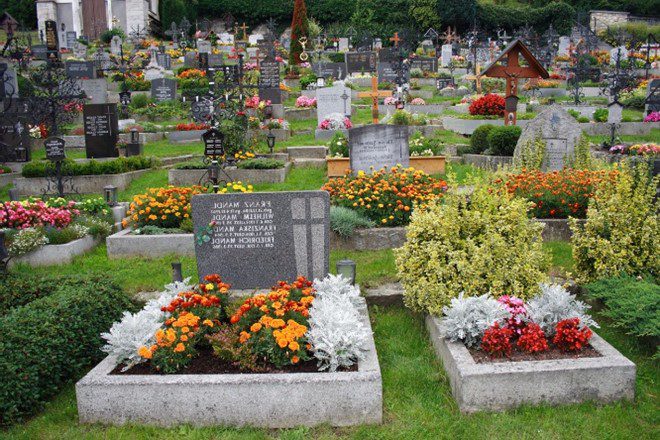
The Key to Confidence: Funeral Home’s Insurance Solutions
Funeral homes play a significant role in preserving cherished memories and providing solace to grieving families during difficult times. However, operating a funeral home comes with unique challenges and responsibilities. In this article, we will explore the importance of funeral homes in preserving memories and the crucial role that business insurance plays in protecting these invaluable establishments.
Understanding the Challenges Faced by Funeral Homes
Funeral homes face specific risks associated with their operations, such as handling delicate funeral arrangements, transportation of remains, and coordinating memorial services. These unique aspects expose them to potential liabilities and vulnerabilities that require careful attention.
Without adequate protection, funeral homes can face severe financial consequences in the event of accidents, property damage, lawsuits, or other unforeseen incidents. The absence of proper insurance coverage can leave these establishments exposed to significant liabilities and potential legal battles.
The Vital Need for Business Insurance in Funeral Homes
Safeguarding physical assets
Insurance for funeral homes includes coverage for the physical structures, ensuring that in the event of damage from fire, natural disasters, or vandalism, the necessary repairs or reconstruction can take place promptly.
Funeral homes rely on specialized equipment, funeral vehicles, and an inventory of essential supplies. Business insurance provides coverage for these assets, safeguarding against theft, damage, or loss.
Liability protection
Funeral homes need professional liability insurance to protect against claims arising from errors, negligence, or mistakes made during funeral arrangements, embalming procedures, or transportation of remains. This coverage offers financial protection and peace of mind.
General Liability Insurance
General liability insurance safeguards funeral homes against claims related to bodily injury, property damage, or accidents that may occur on their premises. It covers legal fees, medical expenses, and settlements, reducing the financial burden in the event of a lawsuit.
Specific Types of Insurance Coverage for Funeral Homes
Property Insurance
Coverage for buildings and structures Property insurance for funeral homes provides financial protection in case of damage or destruction to the building structures due to fire, storms, vandalism, or other covered perils.
Protection for Equipment and Inventory
This coverage extends to funeral home equipment, including embalming machines, cremation equipment, vehicles, caskets, and other inventory. It ensures that funeral homes can quickly recover and continue their operations in the face of loss or damage.
Professional Liability Coverage
Professional liability insurance, often known as errors and omissions insurance, is specifically designed to protect funeral homes against claims of professional negligence, mistakes, or omissions in the funeral service process. It provides coverage for legal defense costs, settlements, or judgments.
General liability coverage
General liability insurance covers funeral homes against third-party claims for bodily injury, property damage, or personal injury that occur on their premises or as a result of their operations. It offers financial protection and peace of mind in the face of unexpected accidents or incidents.
Product Liability Coverage
Funeral homes may offer various products, such as caskets, urns, or memorial keepsakes. Product liability coverage protects against claims related to defects or damage caused by these products, ensuring that funeral homes are financially protected from potential legal actions.
Worker’s Compensation Insurance
Worker’s compensation insurance is crucial for funeral homes to provide a safe working environment for their employees. It covers injuries or illnesses that occur while performing job duties, including lifting heavy objects, exposure to hazardous substances, or repetitive motions.
Managing Claims and Medical Expenses
In the unfortunate event of an employee injury or illness, worker’s compensation insurance covers medical expenses, rehabilitation costs, and a portion of the employee’s lost wages. This coverage helps alleviate the financial burden on both the employee and the funeral home.
Coverage for Income Loss During Disruptions
Business interruption insurance protects funeral homes against financial losses when unforeseen events disrupt their operations, such as fires, natural disasters, or other incidents. It provides coverage for lost income and necessary expenses during the period of interruption. By mitigating the financial impact of business interruptions, this insurance enables funeral homes to recover and resume their services without significant financial strain. It ensures that funeral homes can continue to support grieving families during difficult times.
Umbrella Insurance
Umbrella insurance provides an extra layer of liability coverage beyond the limits of underlying policies such as general liability or professional liability insurance. It offers increased protection against costly lawsuits or claims that exceed the limits of primary coverage. By providing broader coverage and higher policy limits, umbrella insurance offers funeral homes peace of mind, knowing they have additional financial protection against unexpected and substantial liability claims.
Choosing the Right Insurance Policies for Funeral Homes
Funeral homes should conduct a comprehensive assessment of their specific needs, risks, and operations. This includes considering factors such as the size of the establishment, the range of services provided, and the number of employees.
Working with an Independent Insurance Agent
To ensure the best coverage and personalized service, funeral homes should work with an independent insurance agent who specializes in commercial insurance for the funeral industry. These agents have expertise in assessing unique risks and tailoring insurance policies accordingly.
Comparing Coverage Options and Premiums
Funeral homes should gather multiple insurance quotes from different carriers and carefully compare coverage options, policy terms, exclusions, and premiums. It’s important to strike a balance between adequate coverage and affordability to meet the specific needs of the funeral home.
Mitigating Risks and Ensuring Lasting Memories
Implementing risk management strategies
Funeral homes should establish robust safety protocols and provide proper training to employees to minimize the risk of accidents or injuries. This may include procedures for proper lifting techniques, handling chemicals safely, and ensuring the security of the premises.
Regular equipment maintenance Routine maintenance and inspections of equipment and vehicles are essential to prevent malfunctions or breakdowns during funeral services. Funeral homes should establish a schedule for regular maintenance and keep detailed records of inspections and repairs.
Conducting Thorough Inspections and Evaluations
Funeral homes should conduct regular inspections of their premises to identify potential hazards, such as trip and fall risks, electrical hazards, or structural issues. Identifying these risks early allows for timely mitigation and prevention of accidents.
Addressing issues proactively once potential hazards are identified, funeral homes should take immediate action to address and resolve them. This may involve repairs, modifications, or implementing additional safety measures to ensure the well-being of staff and visitors.
Navigating the Claims Process
In the event of an incident or accident that leads to an insurance claim, funeral homes should follow a systematic process to ensure a smooth claims experience:
Notify the insurance provider: Immediately inform your agent about the incident and they will help initiate the claims process. Provide all necessary details, such as the date, time, and location of the incident, as well as any relevant documentation or photographs.
Document incidents and damages: Thoroughly document the incident by taking photographs, collecting witness statements if applicable, and preserving any physical evidence. This documentation will support the claim and help in the assessment of damages.
Cooperate with the insurance adjuster: Upon filing the claim, an insurance adjuster will be assigned to assess the damages and determine the coverage. Cooperate fully with the adjuster, providing any requested documentation, information, or access to the premises.
Keep track of expenses and losses: Maintain detailed records of all expenses and losses incurred as a result of the incident. This includes costs related to repairs, replacements, medical bills, or any other relevant expenses. These records will be crucial for reimbursement and claim settlement.
Staying Up to Date with Insurance Coverage
Funeral homes should schedule regular policy reviews with their insurance agent or broker. These reviews ensure that coverage aligns with the changing needs of the business, considering growth, expansion, or any modifications to services or operations.
As your business evolves, it’s essential to reassess insurance coverage to ensure adequate protection. This may involve increasing coverage limits, adding additional policies, or modifying existing policies to address new risks or ventures.
Conclusion
Funeral homes play a crucial role in preserving memories and supporting grieving families during difficult times. However, they also face unique risks and vulnerabilities that can have significant financial and legal consequences. That’s why business insurance is essential for funeral homes to safeguard their physical assets, protect against liabilities, and ensure the well-being of their employees.



